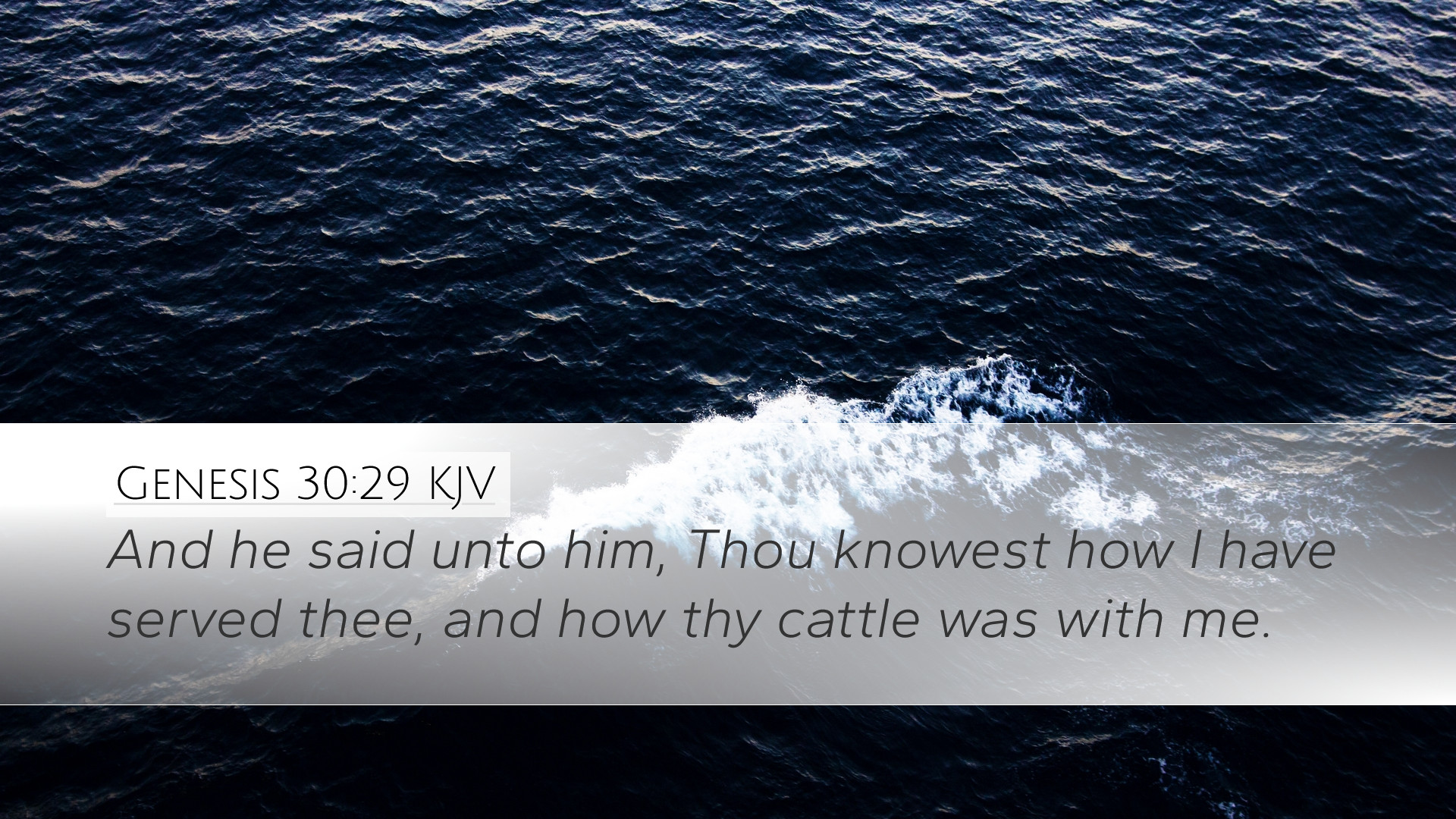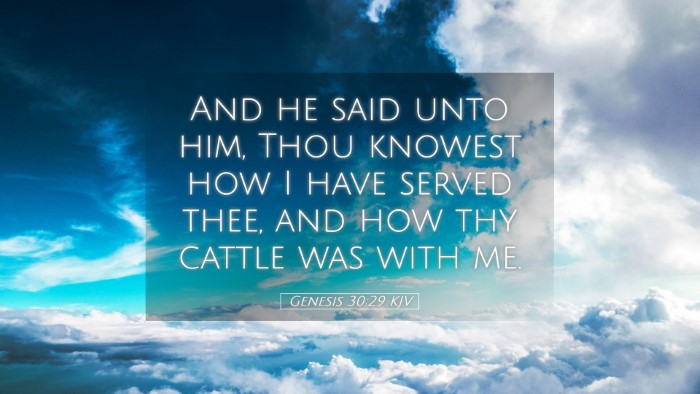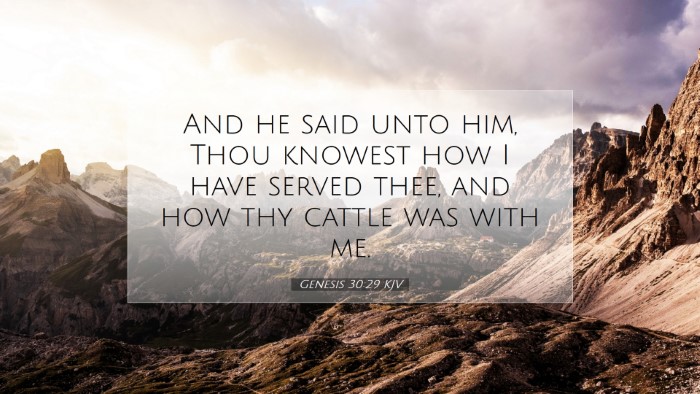Commentary on Genesis 30:29
Verse: Genesis 30:29 - "And he said unto him, Thou knowest how I have served thee, and how thy cattle was with me."
Introduction
This verse occurs in the dialogue between Jacob and Laban, highlighting the dynamic of their relationship and the labor Jacob put forth for Laban's household. It serves as a transitional point in the narrative, leading to Jacob's future decisions and actions concerning his family and wealth.
Historical Context
The background of Genesis 30 is rooted in the story of Jacob’s sojourn in Haran, where he worked for seven years to earn Rachel's hand in marriage, but was deceived into marrying Leah first. This has significant implications for understanding the familial and socio-economic structures of the time.
Commentary Insights
Matthew Henry’s Commentary
Matthew Henry emphasizes Jacob's reflection on his service to Laban. He suggests that Jacob had been honest and diligent in his labor, which serves to underscore the theme of integrity in work. Henry points out that Jacob did not seek to exploit Laban but worked hard, which eventually laid the foundations for his own prosperity. This evokes a larger biblical principle that diligence in work is commendable and divinely rewarded.
Albert Barnes’ Notes
Albert Barnes further elucidates the nature of Jacob’s tenure under Laban, focusing on the transformative journey Jacob undertook. He notes that Jacob's service was characterized not merely by physical labor but also by the strategic management of livestock. Barnes interprets Jacob's growth - both spiritually and materially - during this period as an important lesson in divine providence. The verse serves as a testament to God's hand in Jacob's life, even when it seemed he was at the mercy of Laban's manipulations.
Adam Clarke’s Commentary
Adam Clarke highlights Jacob’s awareness of the value of his work. He notes that Jacob's acknowledgment of his input is a foundational principle in the understanding of equitable labor relations. Clarke analyzes the phrase "how thy cattle was with me," suggesting it reflects Jacob's significant role in increasing Laban's wealth. Clarke’s analysis takes a theological turn, suggesting that this moment is not just about labor but also about God’s blessing upon Jacob, which remediates the injustices faced in Laban's household.
Theological Implications
- Divine Oversight: The interplay between Jacob and Laban demonstrates God's sovereignty and provision. Jacob’s success, despite Laban's trickery, points to God's faithfulness to His promises.
- The Principle of Effort: The text suggests that hard work is paramount in achieving success. Jacob's labor reflects the biblical norm that one should work diligently and honorably.
- Relationships and Trust: Laban’s relationship with Jacob showcases the difficulties that arise when trust is broken. Jacob’s prayerful attitude and reliance on God provide a model for dealing with conflict in relationships.
Practical Applications
- Integrity in Employment: This passage encourages modern readers, especially those in positions of employment, to conduct themselves with integrity and to recognize God's hand in their work.
- Faith in Adversity: Jacob's perseverance amidst challenges serves as a reminder that faith in God will sustain believers through difficult circumstances.
- Understanding Wealth: The increase in Jacob's flocks teaches that wealth can result from hard work and divine blessing, prompting reflection on the use of resources and stewardship.
Conclusion
Genesis 30:29 encapsulates a significant moment in Jacob's journey, offering rich insights that resonate with contemporary believers. The enduring principles of hard work, integrity, and reliance on divine providence embedded in this text provide a foundation for both pastoral teaching and personal reflection. As scholars and theologians engage with this passage, they are reminded of the timeless truths that emerge from Jacob's experience.


